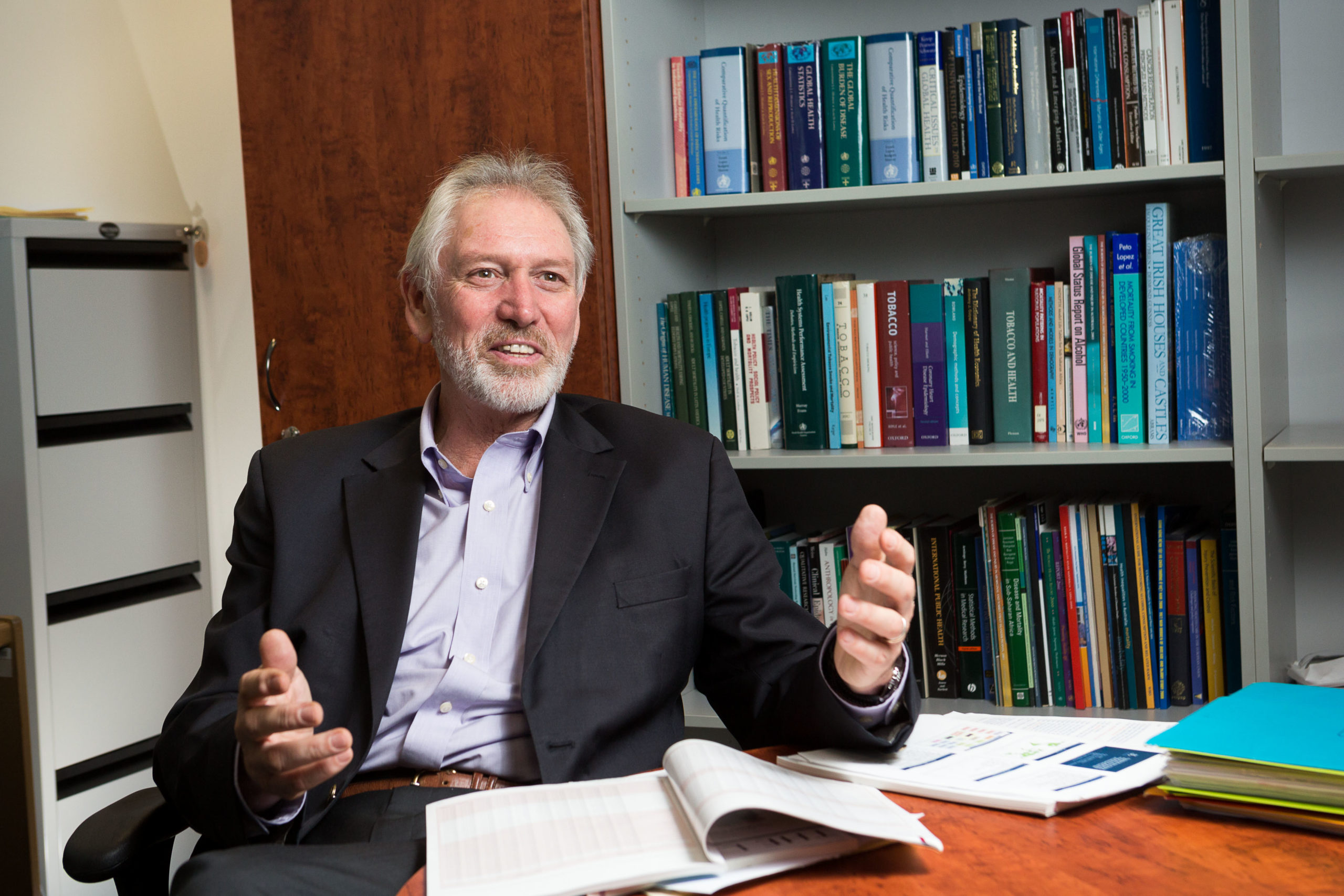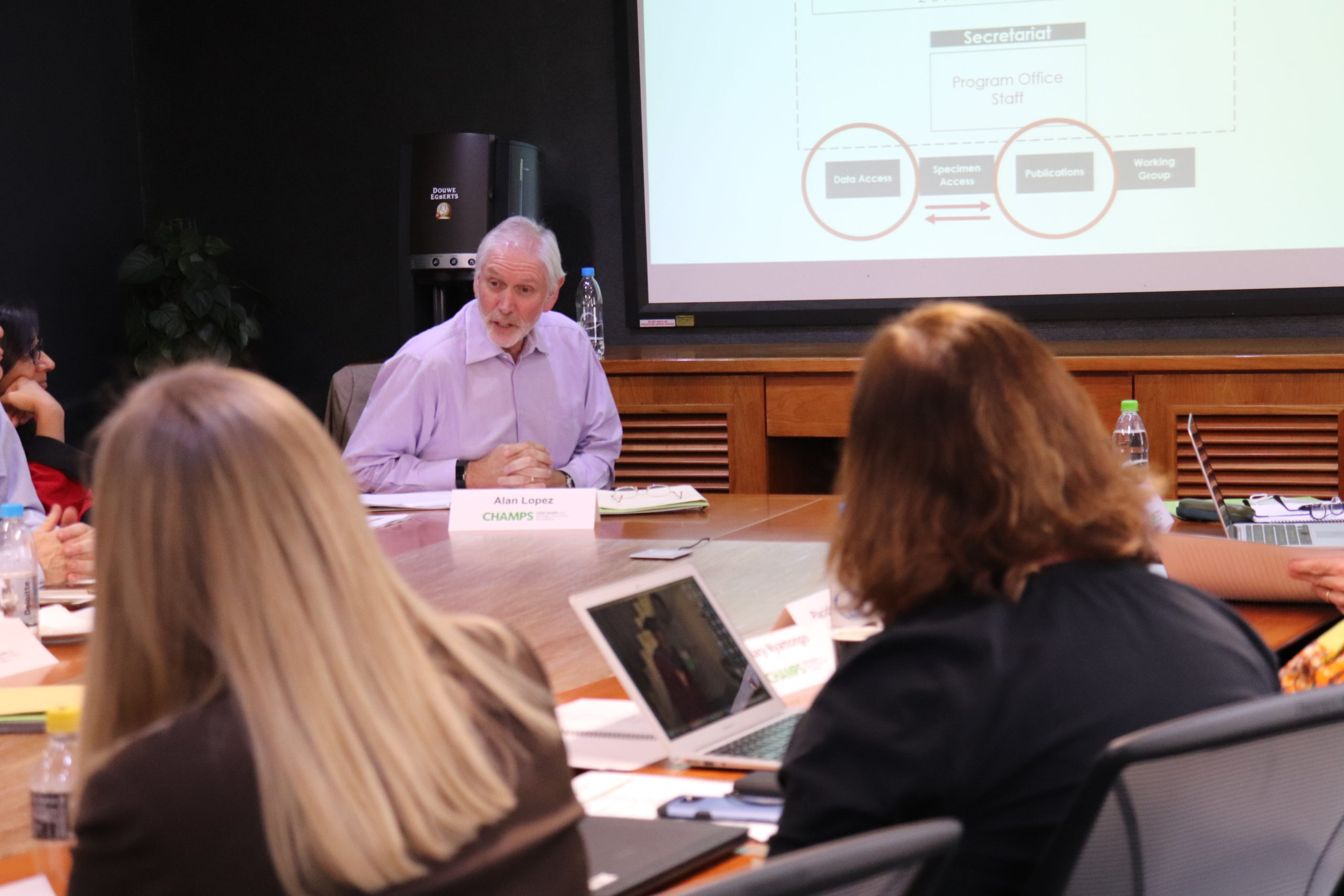
Q&A with Alan Lopez
December 13, 2017
CHAMPS News
Q & A with Alan Lopez, ‘I’m trying to change the world.’
Professor Alan Lopez, Laureate Professor of Global Health at the University of Melbourne, and member of the CHAMPS Global Partners Board.

Why are global health partnerships important to reducing child mortality?
Countries can’t achieve the kinds of reductions they need in child mortality themselves. There are new technologies emerging, there are new health systems delivery ideas, there are new research findings- all these things are global public goods that we all need to benefit from. Bringing these advances to the forefront of the global momentum and movement to bring down child mortality is absolutely critical. This partnership is one very good way to do that.
How is your organization working to reduce child mortality?
One of the primary things I do at the University of Melbourne is help estimate the global burden of disease every year. That’s predicated on the belief that reliable and timely information about: which children are dying, where, from what, and how much can be prevented, is really important for health systems to build upon, and for politicians and countries to know about and to act on. If we don’t have reliable information on causes, levels, and trends of child mortality, then we don’t have that impetus for accountability that should characterize the 21st century global health movement. My organization, the University of Melbourne, is actively involved in that global health measurement research agenda.
What led you to your role on the CHAMPS Global Partners Board?
I was fascinated by the innovation that comes with CHAMPS. I’ve worked in the measurement of health for four decades, mostly at the World Health Organization, and for the last 15 years at universities in Australia. I can see the enormous potential of research methods to rapidly reduce the amount of time needed to diagnose causes of death in the field and the cost of interventions. With IT advances we can now do Verbal Autopsy (VA) interviews in the field in 20 minutes, which in the past took up to an hour to do. People transcribed long VA interviews from paper onto computers and it was very clumsy and error prone. Our VA methods today are much more accurate and cost efficient. It’s generating information governments don’t have about who dies of what in different populations. CHAMPS is a fantastic opportunity to improve on what we do, based on the best possible science worldwide.

Why is CHAMPS program important for families and communities?
It is important because we all have a moral responsibility, let alone a public health responsibility, to keep babies alive to adolescence. We have the technology. Very few children die in the United States or Australia or the United Kingdom because we have effective treatments available and we have the health systems to deliver them. Why can’t we be doing the same in other parts of the world? CHAMPS is important because it helps promote that reality and our obligation to do something about it.
How does CHAMPS support the work that you’re doing as a professor, and how does your work align with what we do?
One of my biggest interests is to develop Verbal Autopsy practices in places where there are no doctors. For example, in Myanmar 400,000 people a year die with little, if any medical attention, given the lack of doctors in rural communities. We don’t know what they die from. Our research has improved the Verbal Autopsy technique to the point where we can now interview the family of the deceased using mobile devices, and on the basis of those responses, can confidently apply computer algorithms to reliably diagnose the cause of death. This is a quick, cheap, and effective way to generate essential intelligence on who dies of what in communities. However, we don’t know how valid that approach is in different populations. Where we’ve done the research it’s worked well, but is it valid in other places? Can we transfer that important cost-effective technology elsewhere? CHAMPS offers the opportunity to validate these methods- given the intense degree of scientific scrutiny behind each case.
How does the CHAMPS Network support the Sustainable Development Goals for reducing child mortality?
CHAMPS’ work is absolutely essential and fundamental. So many of the Sustainable Development Goals are directly related to reducing mortality. Countries cannot asses their progress with these goals unless they have reliable and timely cause of death data, and most of them don’t have that data, particularly for children. CHAMPS is offering a fantastic opportunity for counties to not only benefit from scientific advances in diagnostic methods, given the intense focus that CHAMPS is bringing to data quality, but also from the methods that CHAMPS, and in particular COMSA, are promoting for generating representative community-level information on causes of death in children.
What keeps you motivated as a public health professional?
I’m trying to change the world, along with the other members of the CHAMPS board, and we are strongly motivated to take advantage of these kinds of opportunities. It is great to see visionary public health leaders like the Gates Foundation, and others, understand and seize the opportunity for investing in something that can change health systems and lead to better health decisions, which can lead to better population health. That is an exciting development and a hugely important moment for all of us working in global health. It’s taken decades and decades of my work in this field to see it eventuate. I’m not going to let this opportunity go.
CHAMPS Sites
Sign up for CHAMPS News

![]()